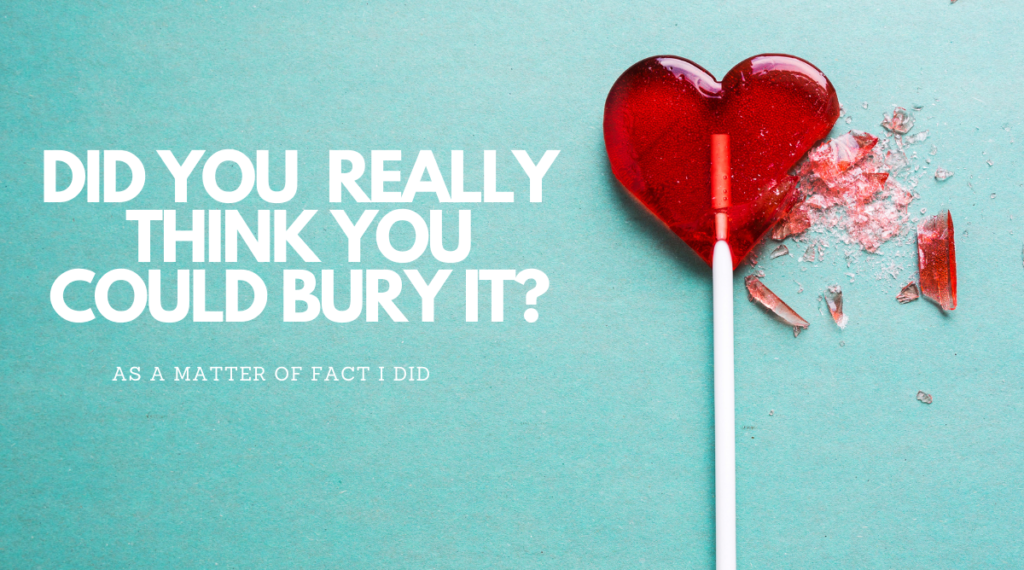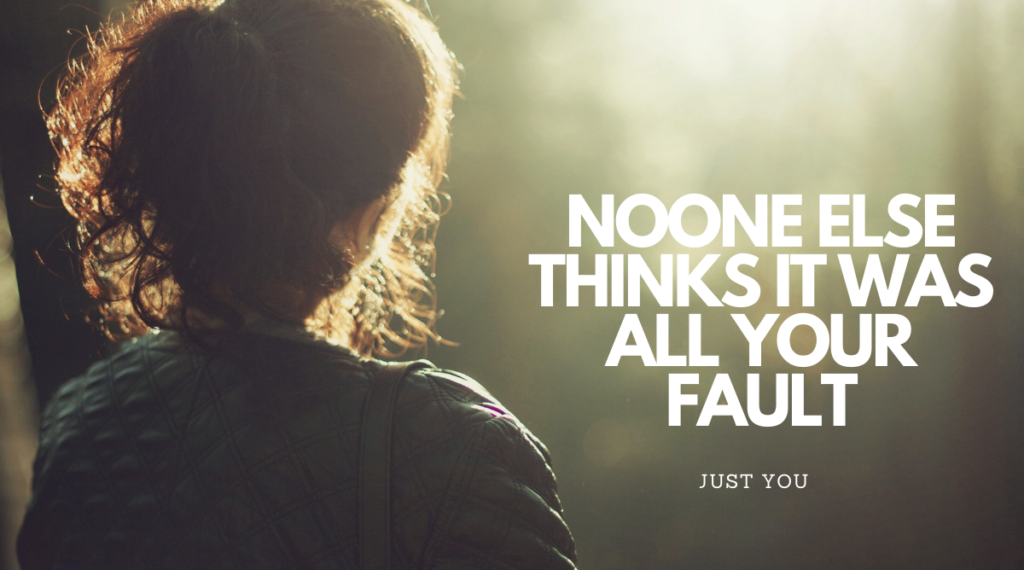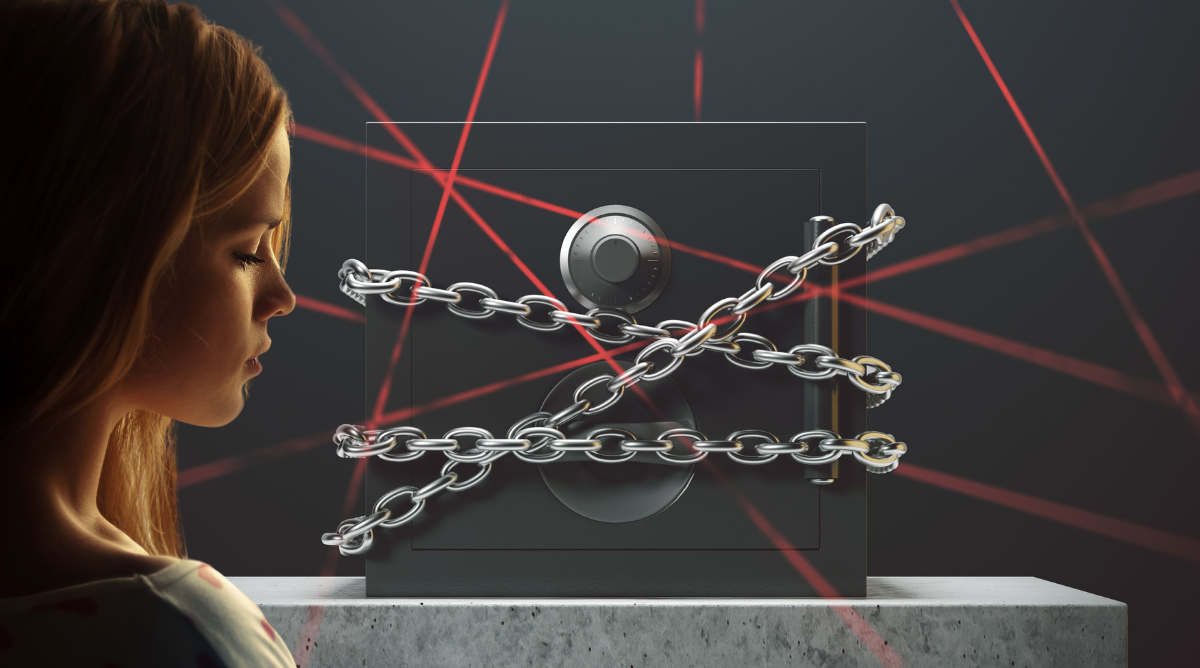People who know me, often say I am hard on myself. The ones who know me intimately, know that I am brutal to myself. I hold myself to a higher and often unattainable standard. I pack more into my day than any human who is kind to themself should.
I’ve been thinking in some new directions lately. You see, I’m not a fan of the self-help genre in general. Dianetics? Yeah, I read it. I learned about Scientology. Thought it was mind control and high-tailed it out of the Scientology hall that was three blocks from where I worked in Toronto. I thought it was bulls*it.
What I did find value in, was the opportunity to complete dianetic-ish training from Landmark. Now, the Landmark Forum weekend cost about $3000 back in the day. I was working for the government, and I had unused professional development money in the employee bank. It was approved by the Registrar, who was a firm believer in Landmark training.
Go do $3k of professional development training for free? You betchya! Because on the flip side of the Landmark Forum, and several smaller units of self-mastery training, I changed. In some really good ways. It put me in touch with a kinder, but also more pragmatic view of the world. Patterns of human behavior, and a roadmap to understanding myself better. Aka… why certain behaviors manifest, even if they are counterintuitive to the result I want to achieve.
Big words there. It helped me understand my brain. The training was full of self-governance revelations, but one of the most powerful ones was creating ‘stories’. And when you start to dive into the stories you create, you begin to understand why you choose things that don’t always make you happy. And worse yet, decisions that sabotage your happiness and success.
What is a “Story” According to Landmark Education?
I am a writer and have a creative brain. So, the fact that I am able to create complex psychodynamic stories shouldn’t be a surprise to anyone. Well, it was a heck of a surprise to me. I was unaware of the behavior and the impact it had on virtually everything.
A “story” is a fictitious dialogue or narrative that you create in your brain, that is not based on fact. For example, you buy a dress and try it on. You show your partner, but they walk through the room texting on their phone. You create a “story” that your partner finds you unattractive. After all, they just ignored you, right?
The story can quickly mushroom. Do they really find you unattractive? Are they cheating on you? Are they bored in your relationship? Why does he come home late from ‘work’ some nights? Suddenly you have a snowball of a story where you are deficient. You are filling in the blanks, even though you don’t have all the information.
You know what they say about making assumptions, right? Mmmhmm… but when you create these narratives sans facts, the next step is to erode your self-confidence. People are self-effacing naturally. We are acutely aware of our deficiencies and shortcomings. What stories do (and why they are so damaging) is that it paints a negative scenario where you are the problem. The bad guy. The reason for the bad thing happening is your fault. Somehow.
Your partner may have had an urgent call or text from work. Or from a friend in need. You don’t know because you didn’t pause to do any fact-finding. To get a better, and more accurate read on the situation. But you are 100% sure it is your fault.
Trauma does this. Creates this psychological behavior. If you always blame yourself and assume guilt, then no one else can accuse you of being wrong. Convenient right? It’s protectionism in the most warped way. Ultimately, creating stories doesn’t protect you from anything. It vilifies you to yourself.

Building an Inventory of the Stories I Have Created for Myself
One of the things that the Landmark Forum teaches you, is to do an assessment of your stories. Feeling worn out? Sad? Or not coping with stress as well as you usually do? You may have piled on a bunch of stories (or inner narratives) that are weighing you down.
And like the stuff in my closet that doesn’t fit (or I don’t like anymore), it was time to root through. Keep what was good. And throw away what didn’t serve my needs anymore. Rather, donate what I didn’t want to keep. Purge. The good kind of purge, not like “The Purge” movie. Although, if you don’t remove your stories, I guess it could lead to (psychological) slaughter also. From the inside out.
Identifying the Negative Background Scripts
I completed the story inventory exercise. And stood in front of my whiteboard and started writing them out. One? Okay, maybe two? Nope. It turns out there were a few more running like background apps in my brain. And none of them were particularly fact-based:
- The bad marriage was your fault. If you had managed things better, it wouldn’t have become so toxic. You are smart. You knew it was failing. So, smarty pants, why didn’t you execute some strategy to fix it?
- This is your second divorce. One is intolerable. Two? My God… what is wrong with you?
- You aren’t capable of having healthy relationships like everyone else.
- The only thing you are good at is writing, and making money.
- You are a workaholic who doesn’t know how to balance your career with having a meaningful life.
- You are not attractive to men. (This one is a persistent or what they’d call a terminal story).
- Nobody likes you. That’s why you are alone. That’s why his immediate family rejected you.
- You aren’t as good as everyone else. In fact, you aren’t even close to passable compared to other people.
- If you were a better quality woman, he wouldn’t have cheated on you. And took you for granted.
- No one likes a woman with a leadership personality. Particularly men.
- You really aren’t that talented. You are fooling people.
- The only men you can attract are exploitative and disrespectful players.
- He tanked after you ended the marriage. And now he’s in a wheelchair. That’s your fault.
- You were able to end the marriage and still land on your feet. Why aren’t you grieving? Why didn’t it tank you like it did for him? Didn’t you love him? No show of weakness?!?! What are you… a flippin’ robot?

No. You are a human. Maybe you are just strong AF. Maybe, after a lifetime of having the emotional rug pulled out from under you, some skills developed. Like, the ability to shut down your emotions and execute what needs to be done to get you out of a situation.
Isn’t that what allows you to keep walking? Resilience isn’t a bad thing. And it doesn’t make you a bad person. In fact, if you think about it from a calm place, your resilience in the face of adversity is one of your favorite qualities about yourself.
The armor that you put on to get yourself through, however, has a flaw. You can throw it on quickly when you need to. But once it is on, it is difficult to remove. And after ten years together, maybe the outcome was so devastating that you feel like you can’t take the armor off. Even now, after you made the transition and started a new life.
Flogging Myself and Eroding My Sense of Self-Worth
Wow. Lot’s to unpack there. Not sleeping well? Skipping meals? Working yourself to exhaustion? Those are all attempts to kind of punish me for the narratives going on inside my head. If I am guilty of all of the above, I must be a terrible person. And if so, an act of self-flagellation is required, yes? How about daily self-inflicted punishments?
With a side-order of some extremely harsh negative self-talk. I’ve been called out on that so many times in the past four months that I became aware of it, too.
Now, I am starting to understand where this is coming from. Working too much. Not going out. Not allowing myself to relax, or have fun. Why is a bubble bath and a documentary watched from my laptop, balanced on the toilet lid a special treat? Why (if it brings me so much joy) do I not allow it more often? Because I don’t deserve to be happy if I am guilty of all of the above.
Because I am blaming myself. For everything, apparently. And I am telling myself that I am being noble because I have a strong sense of accountability. That’s integrity, right? I’m abusing myself. I would never hurt someone deliberately. Unless that someone, apparently, is me. Then it’s cool.
Because my feelings don’t matter. Buck up. Carry on. And whatever you do… don’t look like a victim. Because that is weak.

Separating Facts From Feelings: Allowing the Rational Brain to Evaluate
Do I really believe those things? Those stories that are running and taking up so much bandwidth inside my cognitive OS? Well, the thing about stories is that they are stealthy. They run, draining you of energy. They also drain you of self-confidence, and compassion for yourself. Because if you are guilty of the horrible things you are accusing yourself of, you can’t be kind to yourself. You are the veritable bad guy.
Was I the bad guy? Why? Did I ask for any of it? No. Come on Skylar… if you are guilty then let’s see the evidence. At what point in your marriage to him did you create a strategy to invite the trouble he created? Evidence, please! You like lists and plan everything to the minutia. But you like rules. You like order. You hate chaos. You hate insecurity. And you dislike anything that disrupts peace, and fun, and kindness. You like love. You like companionship. You like trust, stability, kindness, fun, laughter, fidelity.
*Tap*Tap* Is this thing on? Stop evading Skylar. Do you own all those things?
It must be great to be in a toxic relationship with you Skylar. No matter what the other person does to violate your love, trust, faith, generosity, and kindness, you’ll end up blaming yourself for all of it. You’ll pick up the tab, emotionally speaking, every time.
I’m stapling the lid back on the box for now. That’s all I can process right now. It’s 3:30 a.m.




